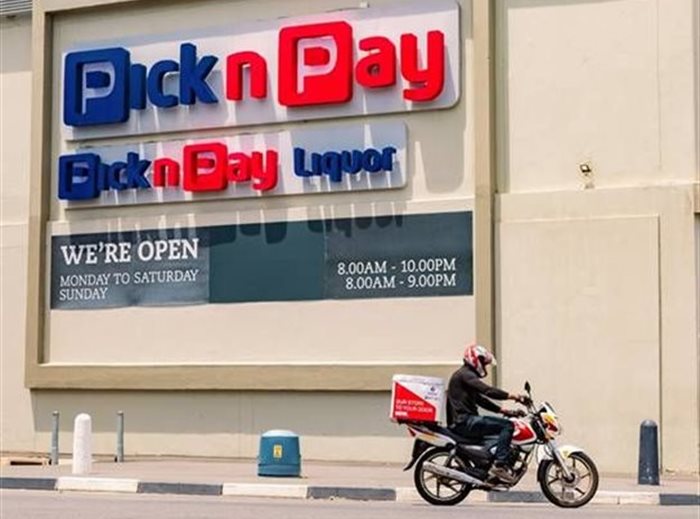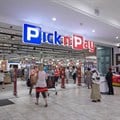With the pandemic-driven time warp we've experienced, it may be tough to recall that just seven years ago, on-demand food and grocery delivery felt like a pipe dream in South Africa. Uber Eats was something we just read about abroad and Mr Delivery took the form of a booklet on our fridge, while 60-minute grocery deliveries was not a reasonable expectation.
It was in this context that Vincent Viviers and Enrico Ferigolli built and launched on-demand drinks ordering app Bottles in 2016, having grown frustrated with the snail's pace of innovation that can often characterise corporate culture and yearning to start a venture of their own.
Bottles is of course now better known as Pick n Pay Asap, the on-demand delivery service of Pick n Pay, following the startup’s expansion into groceries during the pandemic and its subsequent acquisition by the grocery retail giant at the end of 2020.
At the hybrid Ecom Africa event that took place in Cape Town recently, Pick n Pay Asap co-founder Vincent Viviers reflected on the early days of the startup and its path to acquisition.
Proof on concept
Bottles began as a side hustle for Viviers and Ferigolli, who set out to create a service that allows customers to order alcoholic drinks online for delivery to their homes within a few hours. “Who hasn't wanted to press a button and have drinks appear. We went on a journey to try to build that business and we ended up creating South Africa’s first on-demand delivery app at the time without even realising it,” Viviers said.
Describing the very early days of the business Viviers said, “We came up with an idea, and built a basic app, and I remember getting our first order. I got a WhatsApp from the first liquor store we signed up saying 'we have an order'. We had no logistics plan. We had just built an app that allowed customers to order and a bottle store to set up a menu, but no logistics plan. So, we get the message, we send an Uber to the liquor store, we call the Uber and said 'Hi. Can you please go into the store and fetch this order and go deliver it to this random person.'
“We built a business model initially on three products that 15 years ago didn't exist. We used Uber to do deliveries for the first six months, used WhatsApp to communicate with stores, and used Facebook geo-targeting with a 5km radius around the liquor store we signed up to target people in that area with a small digital media budget.
“Through that, we were able to prove the model on a small budget while still having full time jobs, and that allowed us to go raise money and build the proper model we needed."
Finding a retail partner
A few rounds of funding – the first stemming from the local version of TV series Shank Tank – allowed the entrepreneurs to eventually jump ship from their corporate roles to dedicate more energy to their venture, and scale the idea…but only to a point.
“...We were signing up one bottle store at a time. We had about 30 bottle stores, but every store had a different menu, pricing, and systems to work with so it was becoming difficult to scale quickly. We knew that we needed to look to a retail partner to help scale business much faster.”
Enter Pick n Pay Liquor. After a successful pilot in 2018, Bottles integrated with Pick n Pay and eventually rolled out to 60 stores across the country. Explaining the decision Viviers said, “If there's no integration with [the retailer’s] stock on hand data and pricing that runs continuously, it becomes difficult to provide a good service to the customer."
Pivoting in four days
The partnership enabled Bottles to scale, but then came Covid. While businesses across the country struggled, the pandemic proved to be a shot in the arm for e-commerce, and sales through Bottles skyrocketed in March 2020 before grinding to a halt when alcohol sales were banned.
Overnight, the business that Viviers and Ferigolli spent five years building was prohibited from trading, threatening its existence. “But we knew that we had the technology, the infrastructure, and a team that could play a pivotal role during lockdown, when customers wanted to stay home and stay safe, and get products delivered. And we had a partner in Pick n Pay…”
Pick n Pay’s scheduled delivery service was suffering a backlog of around 14 days at the time, and presented an opportunity for Bottles to expand into groceries and supply the elevated demand for speedy grocery delivery.
Working with Pick n Pay, Bottles pivoted in just four days.
“We went live with a pivot of Bottles becoming a grocery delivery business with just two stores. By the next day it was in 50 stores, and by the end of the first week we had rolled out to 90 grocery stores. All virtually! We had been in 60 liquor stores but in a week we rolled out to 90 grocery stores without being able to walk into any store. We were training staff through Zoom and WhatsApp, and letting them use our technology to figure things out as we went along,” Viviers said.
“In the first month we grew 400% from the previous month. To this day, we've probably 20x'ed the business from where it was previously.”
This successful transformation led to Pick n Pay acquiring Bottles, with Ferigolli, Viviers and key Bottles staff moving across to the retail giant to form part of the team of Pick n Pay’s omnichannel team.
Bottles subsequently rebranded to Pick n Pay Asap to more accurately reflect the updated service.
David and Goliath
The transition into Pick n Pay has not been without a few speed bumps, said Viviers, who mentioned a “culture clash”. Some of the friction that needed to be addressed was done through restructuring the business so that there was one coordinated online team, and the the value of online within the overall business was highlighted. “We had to raise the importance of online within the overall structure and had to align incentives of the core business so that they wanted to drive online as hard as we did."
“Stores are the core of what Pick n Pay does, and stores saw online as competition, but we had to change that so they saw it as a department that they can get sales growth from. In some stores we are now 20% of their sales. On average, we probably account for 5% to 10% of store sales.”
Viviers closed off saying, “”I think where we've got to now is a strong place, and now we have benefits of both the startup and corporate in one. It’s not a story of David versus Goliath, now it’s David and Goliath.
“We are trying to still embody the agility and specialised skills of the underdog but with the power, backing, funding and support of a big corporate so that we can build the most remarkable omnichannel shopping experience in the country.”






![Today, Halo and Demographica announce a new specialist agency, Second Rodeo]], headed up by Mike Stopforth (left). Dean Oelschig, managing partner and founder of Halo (right) says they will work as a group but ultimately, each agency will be an individual specialist](https://biz-file.com/c/2505/772543-240x130.jpg?2)






























![Today, Halo and Demographica announce a new specialist agency, Second Rodeo]], headed up by Mike Stopforth (left). Dean Oelschig, managing partner and founder of Halo (right) says they will work as a group but ultimately, each agency will be an individual specialist](https://biz-file.com/c/2505/772543-64x64.jpg?2)








